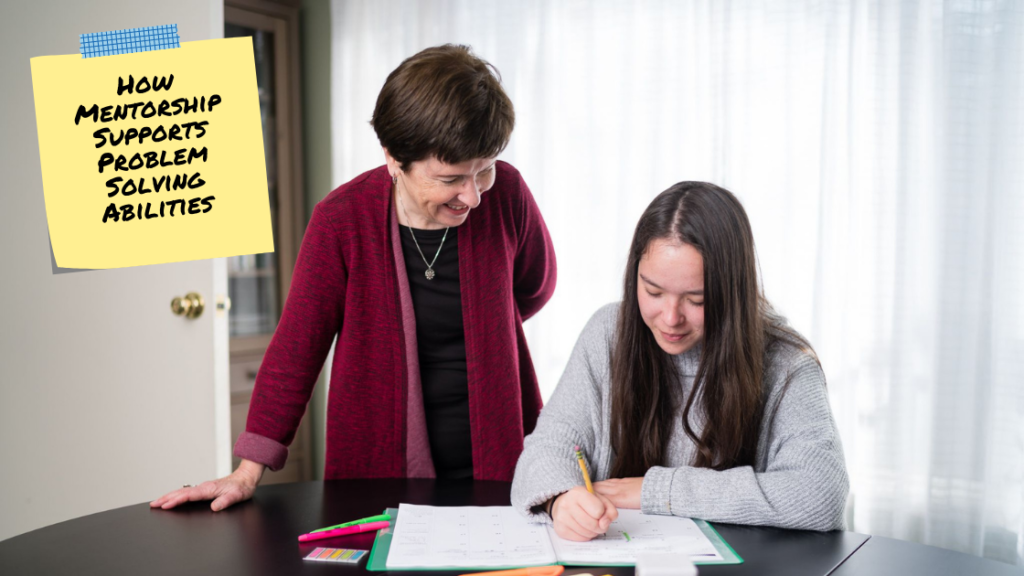One of the key executive functions necessary to achieve behavior change is the development of metacognition, which I define as “thinking about MY thinking.” It is a complex and rather abstract skill. For me, there are three aspects under the umbrella of metacognition: making conscious choices, building self-awareness, and problem-solving. It is the third aspect, problem-solving, that has been bouncing around in my brain lately.
Students and young adults often struggle with problem-solving. Why? They are just young. Simply put, they have had less experience solving problems than the adults in their world. And, sadly, many adults assume that these young people can solve problems like adults. Wrong.
To complicate matters, problem-solving is also directly related to brain development. You can’t do what your brain can’t do. In fact, many young folks aren’t even aware that they have a problem that needs figuring out. They just go along, repeating the same behaviors, getting stuck making the same choices that manifest as a life that doesn’t work very well. They can be clueless as to why life doesn’t just get better.
With brain maturation, typically early 20’s through the early 30’s, rising adults eventually figure out that something needs changing. Unfortunately (sometimes tragically), our world has pushed our young people into an isolated digital world, not necessarily the best place to search for connection and wisdom to identify and solve daily problems.
Mentorship to Support Problem-Solving Development
 I had an interesting discussion recently with a gentleman talking about creating community in these trying times. He shared that in his experience young adults were looking for mentors. What’s a mentor? According to the New Oxford American Dictionary, a mentor is “an experienced and trusted advisor.” A mentor is exactly what these rising adults need to help them develop their problem-solving skills in a complex world.
I had an interesting discussion recently with a gentleman talking about creating community in these trying times. He shared that in his experience young adults were looking for mentors. What’s a mentor? According to the New Oxford American Dictionary, a mentor is “an experienced and trusted advisor.” A mentor is exactly what these rising adults need to help them develop their problem-solving skills in a complex world.
Typically, mentorship is used in the context of the business world. For example, I have monthly mentoring sessions with the instructors who teach Seeing My Time for me. They come with questions, and while I am technically – and literally – the senior in this group, we share our collective wisdom and we all benefit.
One of my very first distance clients ended up taking my professional training course, Teaching Seeing My Time. When I asked him why, he replied that he had some young people in his organization that needed the course. Though he had struggled with his own executive functions, he was able to learn how to change his behavior. With his knowledge, he was inspired to become a mentor for younger colleagues.
But mentoring is not just for the adult world. In another time of my life, I created a volunteer program to teach volunteers how to teach reading to at-risk students. I referred to my creation as a Mentor/Tutor program, purposefully putting the word mentor first. I wanted our students to first have a positive and supportive relationship with the adult volunteer. The reading skills could and did follow.
Connecting With a Mentor
There are nonprofit organizations, such as Minds Matter, that connect students with adult mentors for weekly meetings focusing on setting high school students on the path to attending college. You can also check out mentoring.org, a database designed to connect people with a mentor in their area, and to help those wishing to volunteer to the appropriate organizations. Simply plug in your information and what you are looking for. You will be shown a list of mentorship organizations near you.

So this fall, as life remains uncertain for so many, I invite you to assess your experience and wisdom. Look around your neighborhood, your community, your extended family. Is there a young person who could benefit from you offering to share your life’s lessons, developing trust as you listen to their problems? Use your metacognition to help them develop theirs. Or perhaps you have a rising adult student who would benefit from the wisdom of someone outside their family unit. Help them to seek out and find the appropriate person who might share their wisdom.
We are better when we rely on one another’s wisdom and experience!
Little by Little,

